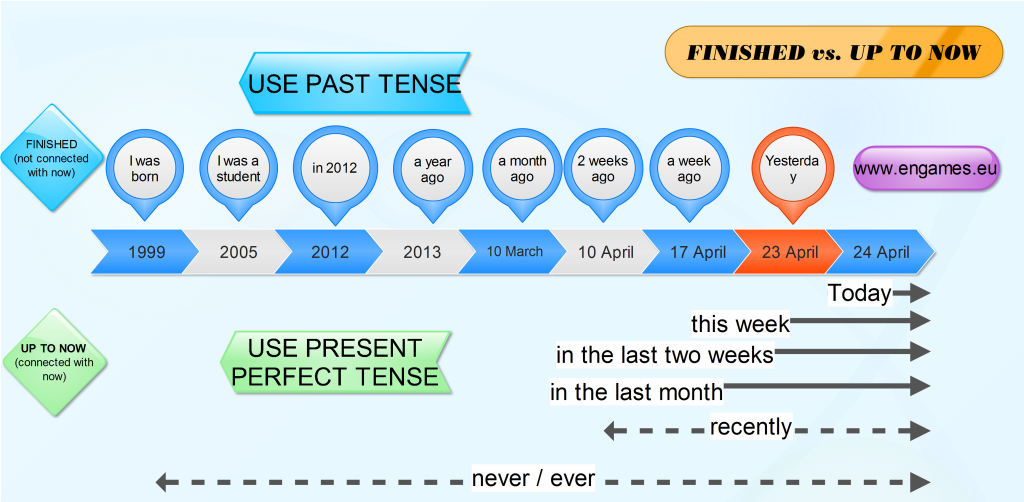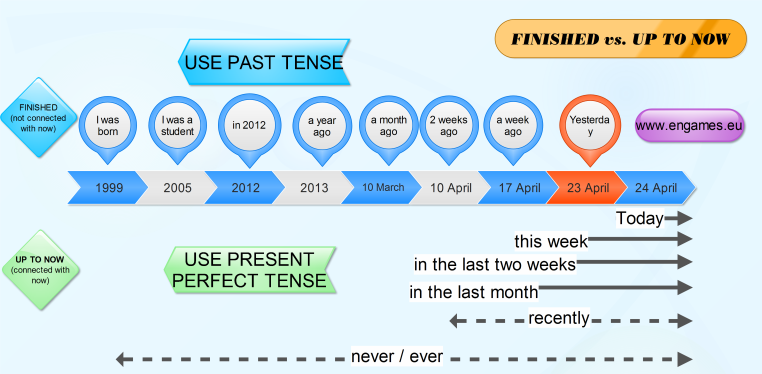There have been many different attempts to explain the difference between the past simple and present perfect tenses to learners of English. I have tried to do this for example in my posts on present perfect basics, Present perfect tense vs Past simple or present perfect infographics.
In the textbook New Inside Out pre-intermediate they try to introduce the concept of “finished” and “up to now” time expressions. I think, it is not a bad way to distinguish between the past simple and present perfect tenses.
ADVERT:
[showmyads]
According to the textbook, finished times are a the expressions which refer to a period or moments that finished in the past and are not connected to the present (for example, yesterday finished several hours ago and this is not connected to now). On the other hand, up to now time expressions refer to periods which are somehow connected to the present time (for example, today is still going on till this moment).
Then the theory is quite simple. If you use a time expression for finished time, use past simple tense. If you use a time expression for up to now time, use present perfect tense.
Present perfect tense – a mind map

The finished times are just the points on the timeline. On the other hand, the up to now times are connected to the present moment.
Present perfect tense – games
Present perfect tense – quiz and Hot race In the second game your task is to choose the correct option and then if you are successful you should shoot all the bad ducks.
Present perfect tense – On target
English Learning Magazine
At our sister site englishlearningmagazine.com we have published a new text on Prague. There is a text and a quiz to check your comprehension. It is mobile phones friendly, so give it a try.
Category: English games, Grammar, Intermediate
Leave a comment
This site uses Akismet to reduce spam. Learn how your comment data is processed.


10 Comments